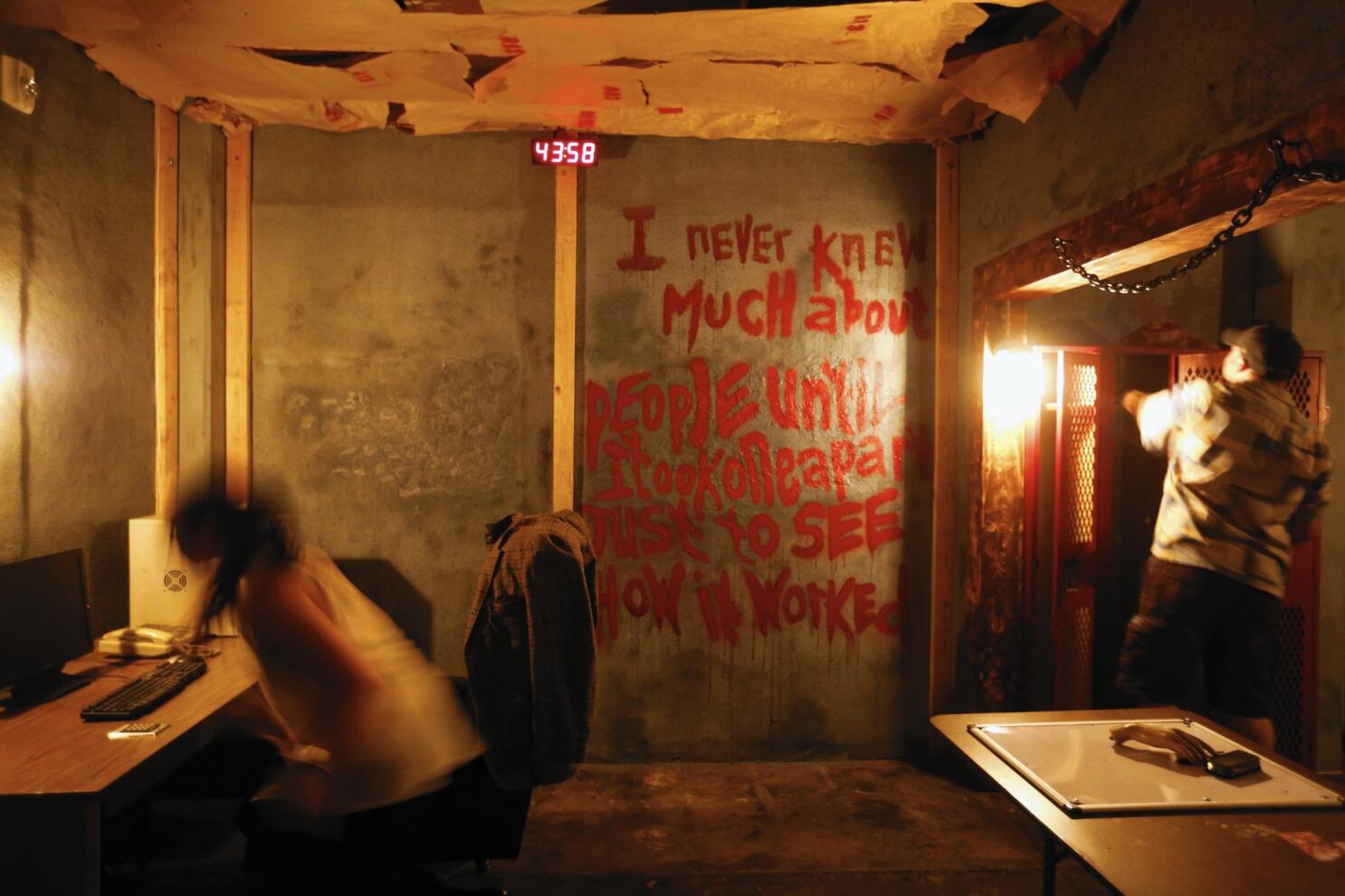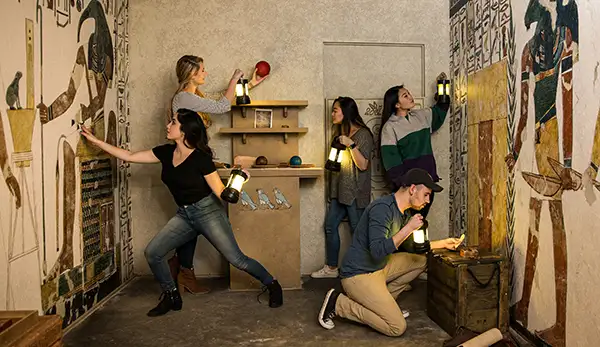Group Tasks at Minneapolis Escape Room-- Perfect for Friends and Family members
Group Tasks at Minneapolis Escape Room-- Perfect for Friends and Family members
Blog Article
Group Approaches: Just How to Work together Effectively in an Escape Space
Navigating the complexities of an escape area requires even more than plain interest; it calls for a well-coordinated method based in clear communication, tactical duty assignments, and proficient time management. Teams need to actively listen to every participant's insights, appoint duties that align with specific strengths, and preserve regular check-ins to guarantee emphasis and stop redundancy. By fostering an atmosphere that values cohesion and flexibility, teams can considerably heighten their efficiency and success rates. The nuances of these techniques can change the experience, yet how precisely can they be carried out to take full advantage of the potential for success?
Establish Clear Interaction

To help with clear communication, it is essential to designate a main factor of contact for details dissemination. This duty involves summarizing searchings for and recommended techniques to guarantee everybody continues to be on the very same page. In addition, adopting a systematic strategy to discussions can avoid chaotic exchanges. For instance, brief, focused updates from each staff member can keep the team informed without frustrating them with details.

Designate Roles Purposefully
While clear communication establishes the foundation for reliable team effort, assigning functions tactically ensures that each team member's toughness are utilized properly. In an escape area scenario, the time-sensitive and intricate nature of challenges requires an efficient technique to job delegation. By determining and leveraging individual expertises, teams can enhance their problem-solving capabilities and enhance total efficiency.
A person with a keen eye for detail may succeed in discovering hidden items, while a rational thinker might be much better matched to resolving challenges. This role frequently needs strong organizational and interpersonal abilities.
2nd, guarantee that duties are adaptable and versatile. As new challenges arise, the group needs to have the ability to pivot, reallocating helpful site jobs as called for. This flexibility assists preserve energy and avoids bottlenecks that might take place because of inflexible role tasks.
Inevitably, a critical approach to duty task not just makes best use of the strengths of each staff member however likewise promotes a natural setting, driving the team in the direction of a successful getaway.
Use Diverse Abilities
Acknowledging and using the varied abilities within your group can substantially boost your efficiency in a getaway room. Each staff member brings distinct strengths to the table, and efficiently leveraging these abilities can expedite problem-solving and boost general efficiency. A group member with solid logical abilities may Visit Your URL excel at decoding complicated codes or patterns, while one more with eager empirical capabilities might swiftly find concealed ideas that others could forget.
Encourage team members to articulate their insights and ideas promptly, making certain that all prospective remedies are taken into consideration. In addition, designating jobs that straighten with each member's toughness can avoid traffic jams and ensure that progression is continuous.
Furthermore, variety in abilities usually equates to variety in assuming designs, which is vital in a retreat area setting. While some obstacles may call for rational reasoning and accuracy, others might benefit from imaginative and association of ideas. By identifying and leveraging this variety, groups can attend to a broader range of challenges better, therefore enhancing their chances of an effective escape.
Manage Time Efficiently
Determine noticeable challenges and split tasks based on group members' strengths, ensuring that nobody is still. This practice can assist keep the team concentrated and protect against time from slipping away undetected.
In addition, avoid one-track mind. If a problem is taking also long, rotate group participants or move on to one more obstacle, returning later on with fresh perspectives. Interaction is vital-- maintain everybody upgraded on solved problems and staying jobs to avoid redundant initiatives.
Finally, utilize any type of hints or ideas moderately but strategically - best browse around these guys escape room. Recognizing when to request for aid can save beneficial time. By sticking to these time administration concepts, groups can significantly improve their possibilities of a successful and enjoyable retreat space experience
Debrief and Show
Representation is a crucial element of group development and enhancement in the context of getaway rooms. Once the challenge is finished, whether successfully or otherwise, it is important for the group to take part in a structured debriefing session. This process permits team members to evaluate their efficiency, determine strengths, and pinpoint locations for enhancement.
Start the debrief by discussing what worked out. Highlight specific instances of effective interaction, analytical, and partnership. Identifying these favorable behaviors reinforces them and urges their rep in future difficulties.
Next, attend to the obstacles experienced. Discuss minutes of complication, miscommunication, or ineffective approaches. Encourage an open and useful discussion where staff member can share their point of views without fear of criticism. This fosters a culture of continuous enhancement and understanding.
Conclusion
In conclusion, successful collaboration in an escape space is asserted upon clear interaction, critical role tasks, the efficient use of varied skills, and skilled time monitoring. By producing a natural and adaptive group environment, the likelihood of effectively solving problems and achieving the purpose of running away the area is considerably enhanced.
Report this page